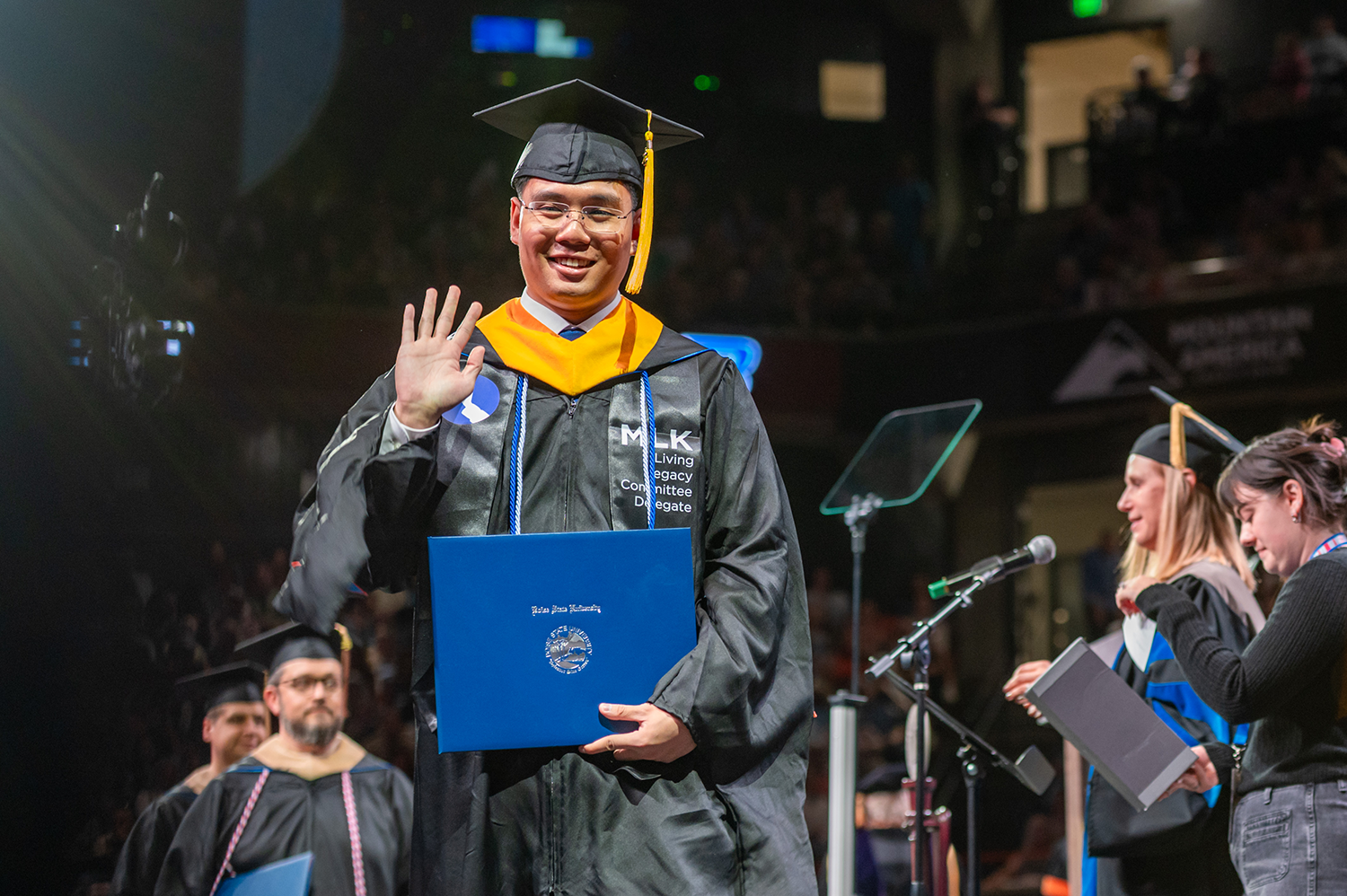In a field driven by the need to support a modern society, Gregor Posadas is proving that civil engineering is also a commitment to improving the quality of life for others.
After graduating from the Department of Civil Engineering with his bachelor’s degree in 2023, Posadas is already earning national recognition for his commitment to sustainable infrastructure, clean water access and environmental justice. In 2024, he was named one of the American Society of Civil Engineers New Faces of Civil Engineering Collegiate Edition, joining a select group of students recognized for leadership and innovation in the profession.
Originally from the Philippines, Posadas relocated to Idaho in 2019 and later joined the U.S. Army Reserves as a combat engineer. The technical skills he honed through military service now bolster his academic pursuits in water and wastewater engineering, where he’s focused on developing solutions for under-resourced communities.
“My dad was a relativity physicist back in the Philippines, but beyond his teaching and research career, he was always a staunch advocate for using science and engineering to uplift others,” Posadas said. “Following in his footsteps, I decided to pursue a career in civil engineering to learn how to shape the built environment for the benefit and well-being of both people and nature.”
His path to environmental engineering was led through an internship opportunity with Stantec and set his course for a wastewater speciality. This experience sparked a broader vision, using engineering as a tool for change.
At Boise State, Posadas contributes to research on emerging wastewater treatment technologies and serves as a Graduate Research Assistant focused on sustainable solutions in municipal wastewater. Outside the lab, Posadas is actively involved across the Treasure Valley community. For the last five years, he’s helped organize Boise’s annual Martin Luther King Jr. Day Human Rights celebration as a part of the MLK Living Legacy Committee.
Posadas found a way to intersect his work alongside advocacy most recently in the nation’s capital. In April 2025, he was the sole student delegate out of 170 participants from the state of Idaho, amongst 32 states, at the Catalyzing Advocacy in Science and Engineering Workshop in Washington, D.C., hosted by the American Association for the Advancement of Science.
The workshop focused on research funding and science policy nationwide, highlighting the current climate of funding freezes and the impact at the state level, specifically on Idaho and its early-career researchers.
“It was an incredible moment to speak not only on behalf of Idaho’s research community, but also for scientists and engineers nationwide,” Posadas said. “One key concern I shared was how this funding uncertainty is influencing career decisions. Many early-career researchers who are considering pursuing a Ph.D. in the U.S. are growing hesitant due to the decreasing availability and viability of fully funded programs. It’s a trend that could have long-term consequences for the future of the American research enterprise.”

Posadas also had the opportunity during the worksop to meet with policymakers, including Idaho Congressman Mike Simpson’s team, to urge stable federal research funding and support for science programs like Idaho’s IDeA Network of Biomedical Research Excellence which play a crucial role in building scientific capacity in the state.
Posadas walked the stage in May 2025 with his Master of Science in Civil Engineering just six years after arriving in the United States. Now, whether he’s advocating in D.C. or optimizing water treatment systems in Idaho, he represents the next generation of engineers, one that’s building for both people and the environment.